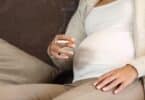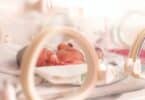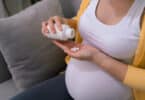We may not fully know what causes autism, but science has certainly learned a lot about this interesting condition. It may even be possible to predict the presence of autism during infancy. Now science has found a potential link between severe morning sickness and the chances of giving birth to a baby with autism.
Hyperemesis gravidarum – an extremely severe form of morning sickness – affects around 3 percent of expectant mothers. Those who experience suffer from intense nausea and are often unable to keep down food or liquids. For some, the condition comes so severe that they need intravenous fluids or even blood transfusions to ensure they and their baby remain healthy.
Researchers examined the potential link between this condition and the risk of autism by reviewing the electronic health records of nearly 500,000 mothers and their babies. All were born between 1991 and 2014 at Kaiser Permanente in Southern California.
Mothers were then divided into two groups – those that suffered from hyperemisis gravidarum and those that did not. Findings concluded that the risk of autism rose by 53 percent when the mother experienced hyperemisis gravidarum within the first and second trimesters. This same link was not present if the mother only experienced severe morning sickness during her third trimester. Researchers say they also ruled out an increased risk of autism among those who used medications to treat their morning sickness.
“This study is important because it suggests that children born to women with hyperemesis may be at an increased risk of autism,” said lead study author Darios Getahun, MD, PhD, of Kaiser Permanente Southern California Department of Research and Evaluation. “Awareness of this association may create the opportunity for earlier diagnosis and intervention in children at risk of autism.”
As it stands, researchers believe that the link may be due to a decrease in nutrient intake because of the condition. However, the study could not rule out other possible explanations, such as maternal smoking and exposure to certain medications prior to becoming pregnant. For this reason, further studies will need to be done to definitively link the condition to an increased risk of autism.







